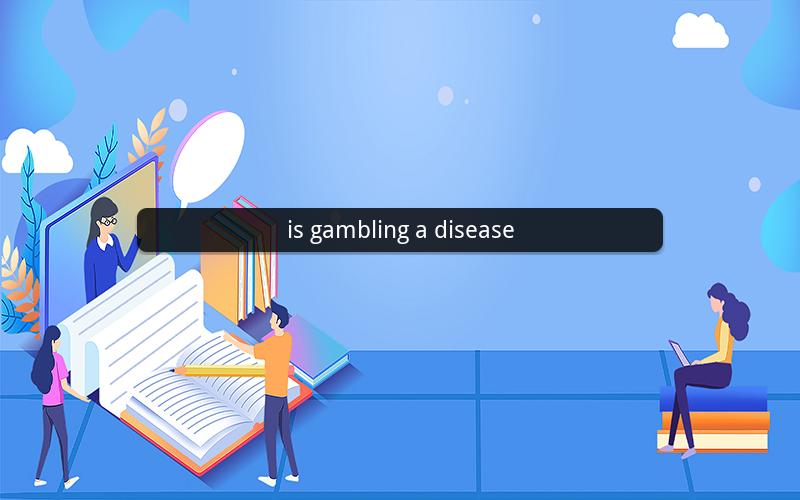
The Complexity of Gambling: Is It a Disease?
Table of Contents
1. Introduction to Gambling
2. Defining Gambling Disorder
3. The Science Behind Gambling Addiction
4. Psychological Aspects of Gambling
5. Societal Impact of Gambling
6. Treatment and Prevention Strategies
7. Conclusion
1. Introduction to Gambling
Gambling, an ancient activity, has evolved into a global phenomenon, with billions of people participating in various forms. From lottery tickets to high-stakes poker, the allure of potential wealth has long been a driving force behind this pastime. However, beneath the surface, gambling can lead to severe consequences, prompting many to question: Is gambling a disease?
2. Defining Gambling Disorder
Gambling disorder, also known as problem gambling or pathological gambling, is a mental health disorder characterized by the inability to control the urge to gamble. This condition is recognized by the American Psychiatric Association (APA) and the World Health Organization (WHO) as a distinct and treatable mental disorder.
3. The Science Behind Gambling Addiction
Research has revealed that gambling addiction is a complex disorder with both psychological and biological components. Dopamine, a neurotransmitter associated with pleasure and reward, plays a crucial role in the brain's response to gambling activities. Over time, repeated exposure to the potential for winning can lead to the release of excessive dopamine, reinforcing the addictive behavior.
4. Psychological Aspects of Gambling
Psychological factors contribute significantly to the development of gambling disorder. Individuals who are susceptible to impulsive behavior, have a history of mental health issues, or seek to escape from stress or negative emotions may be more prone to developing gambling addiction. Additionally, individuals with a family history of gambling problems may inherit a predisposition to this disorder.
5. Societal Impact of Gambling
Gambling has far-reaching societal impacts, affecting individuals, families, and communities. Problem gamblers may experience financial, emotional, and social consequences, including job loss, broken relationships, and legal issues. Furthermore, the societal costs of gambling addiction, such as healthcare expenses and lost productivity, can be substantial.
6. Treatment and Prevention Strategies
Treating gambling addiction requires a multidisciplinary approach, incorporating therapy, medication, and support groups. Cognitive-behavioral therapy (CBT) is a commonly used therapeutic technique to help individuals identify and modify maladaptive thoughts and behaviors associated with gambling. In some cases, medications such as selective serotonin reuptake inhibitors (SSRIs) may be prescribed to manage co-occurring mental health disorders.
Prevention strategies include raising awareness about the risks of gambling, implementing responsible gambling policies, and promoting healthy alternatives to gambling. Governments, organizations, and communities must work together to create an environment that fosters well-being and reduces the allure of gambling.
7. Conclusion
The debate over whether gambling is a disease is ongoing, but one thing is clear: problem gambling is a serious mental health disorder with profound consequences. By understanding the psychological, biological, and societal factors contributing to gambling addiction, we can develop more effective treatments and prevention strategies. It is essential to recognize the complexities of gambling and its potential to harm individuals and society as a whole.
---
Questions and Answers
1. Q: What is the primary neurotransmitter associated with the pleasure of gambling?
A: Dopamine is the primary neurotransmitter associated with the pleasure of gambling.
2. Q: Which organization recognizes gambling disorder as a distinct mental health disorder?
A: The American Psychiatric Association (APA) recognizes gambling disorder as a distinct mental health disorder.
3. Q: What is one common therapeutic technique used to treat gambling addiction?
A: Cognitive-behavioral therapy (CBT) is a common therapeutic technique used to treat gambling addiction.
4. Q: How can governments help prevent gambling addiction?
A: Governments can help prevent gambling addiction by implementing responsible gambling policies and promoting healthy alternatives to gambling.
5. Q: What are some potential financial consequences of gambling addiction?
A: Potential financial consequences of gambling addiction include job loss, debt, and financial ruin.
6. Q: How can family members support a loved one with gambling addiction?
A: Family members can support a loved one with gambling addiction by providing emotional support, encouraging treatment, and seeking support for themselves.
7. Q: What is the role of societal costs in the context of gambling addiction?
A: Societal costs of gambling addiction include healthcare expenses, lost productivity, and the economic burden on communities.
8. Q: How can individuals with a family history of gambling addiction reduce their risk of developing the disorder?
A: Individuals with a family history of gambling addiction can reduce their risk by being aware of their susceptibility and seeking professional help when needed.
9. Q: What is the most effective medication for treating gambling addiction?
A: The most effective medication for treating gambling addiction is not a single medication, as treatment varies depending on individual needs. SSRIs are commonly used to manage co-occurring mental health disorders.
10. Q: Can problem gamblers fully recover from their addiction?
A: Yes, problem gamblers can fully recover from their addiction with proper treatment, support, and lifestyle changes. Recovery is a lifelong process that requires commitment and dedication.